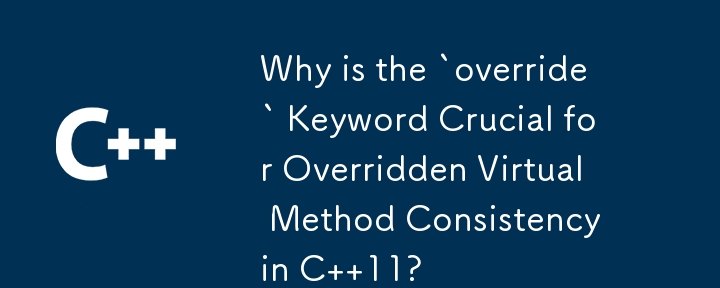

The Role of the 'override' Keyword in Ensuring Overridden Virtual Method Consistency
In C 11, the 'override' keyword was introduced to provide a clear indication that a function is intended to override a virtual function in the base class. This enhancement goes beyond mere error checking and serves a crucial purpose in maintaining the integrity of virtual method polymorphism.
As the provided snippet explains, the key function of the 'override' keyword is to explicitly declare the intention of overriding a virtual method. This explicit declaration aids in eliminating silent errors that might otherwise go unnoticed.
Consider the example below:
struct Base
{
virtual int foo() const;
};
struct Derived : Base
{
virtual int foo() // whoops!
{
// ...
}
};Without the 'override' keyword, this code would compile successfully. However, it would not reflect the intended behavior of overriding the 'foo' function because the const qualifier is missing. The 'override' keyword would raise a compiler error, ensuring that the user is aware of the discrepancy and correcting the code accordingly.
By explicitly specifying the 'override' keyword, programmers can proactively identify and resolve potential errors related to overridden virtual methods, enhancing code quality and maintaining the integrity of virtual method polymorphism.
The above is the detailed content of Why is the `override` Keyword Crucial for Overridden Virtual Method Consistency in C 11?. For more information, please follow other related articles on the PHP Chinese website!




